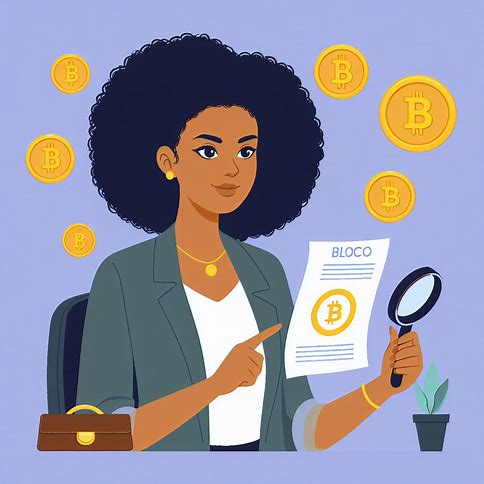Are you a Pi Network user looking to cash out your hard-earned Pi coins? In 2024, several options are available, but it’s crucial to prioritize safety and security. Here are some safe and secure ways to sell Pi coins in 2024.
1: Use official Pi network exchanges.
The safest and most straightforward way to sell your Pi coins is through exchanges officially partnered with the Pi Network. These exchanges have undergone rigorous security audits and comply with financial regulations.
Some reputable Pi Network exchanges in 2024 include:
1. PiNex: PiNex is a popular choice known for its user-friendly interface and low trading fees.
2. Pi-X: Pi-X offers a secure trading environment with advanced features like limit orders and price alerts.
3. PiSwap: PiSwap allows you to easily swap Pi coins for other cryptocurrencies like Bitcoin or Ethereum.
When using these exchanges, ensure you enable two-factor authentication (2FA) for added security. Withdrawing funds to a personal wallet rather than leaving them on the exchange is also wise.
2. Peer-to-Peer (P2P) Trading Platforms
P2P marketplaces connect buyers and sellers directly, allowing you to sell your Pi coins to interested parties. Popular platforms in 2024 include:
1. LocalPi: LocalPi is a decentralized marketplace that supports various payment methods and offers escrow services for added protection.
2. PiMarket: PiMarket provides a user-friendly interface for buyers and sellers to negotiate prices and complete transactions securely.
When engaging in P2P trades, be cautious of scams and only deal with reputable buyers with positive feedback. Use escrow services when available to protect both parties.
3. Over-the-Counter (OTC) Desks
For larger Pi coin transactions, OTC desks offer a personalized and secure trading experience. These desks cater to high-net-worth individuals and institutions looking to buy or sell significant amounts of Pi coins.
Some trusted OTC desks in 2024 include:
1. PiOTC: PiOTC specializes in high-volume Pi coin trades and offers competitive rates and personalized support.
2. PiPrime: PiPrime provides a discreet and efficient OTC trading service with a focus on privacy and security.
When using OTC desks, verify the legitimacy of the service and the identity of your trading counterparty to avoid potential scams.
Related: How To Mine Bitcoin On Android Legitimately In 2024
4. Pi ATMs
By 2024, Pi ATMs will have become increasingly common, allowing users to sell their Pi coins for cash easily. These ATMs are usually located in high-traffic areas like shopping malls, airports, and convenience stores.
To use a Pi ATM:
- Locate a reputable Pi ATM provider, such as PiCash or InstaPi.
- Follow the instructions to send your Pi coins to the designated wallet address.
- Verify your identity if required (some ATMs may have KYC requirements for larger transactions).
- Collect your cash from the ATM once the transaction is confirmed.
While Pi ATMs offer convenience, be aware of potential high fees and always prioritize using ATMs from trusted providers.
Selling Pi Coins Safely: Best Practices
Regardless of your chosen method for selling Pi coins, follow these best practices to ensure a safe and secure experience:
- Enable two-factor authentication (2FA) on all your accounts.
- Use strong, unique passwords for each platform.
- Verify the identity of buyers and only deal with reputable parties.
- Use escrow services when available for added protection.
- Double-check wallet addresses before sending Pi coins to avoid errors.
- Keep your private keys secure and never share them with anyone.
- Stay informed about the latest security threats and scams in the Pi Network community.
Key Takeaway
1. Multiple selling options: Pi Network users can choose from various secure methods to sell their Pi coins, including official exchanges, P2P marketplaces, OTC desks, and Pi ATMs, each with its own advantages and considerations.
2. Prioritize security: Regardless of the selling method, users should follow best practices such as enabling 2FA, using strong passwords, verifying the identity of trading partners, and keeping private keys secure to protect their Pi coins and personal information.
3. Reputation and compliance: When selecting a platform or service to sell Pi coins, prioritize reputable and compliant providers to minimize the risk of fraud, hacking, or legal issues.
4. Tax implications: Selling Pi coins may trigger tax liabilities, depending on the jurisdiction and specific circumstances. Users should consult with a tax professional to ensure proper reporting and compliance with tax laws.
5. Secure storage: To protect Pi coins from theft or loss, users should implement secure storage practices, such as using hardware wallets, non-custodial wallets, and enabling 2FA, while also creating backups of their wallet’s recovery phrase or private keys.
6. Stay informed: Keeping up-to-date with the latest security threats, market developments, and best practices in the Pi Network community can help users make informed decisions and minimize risks when selling their Pi coins in 2024.
Frequently Asked Questions
1: What is the current value of Pi coins in 2024?
The value of Pi coins in 2024 fluctuates based on market demand and overall cryptocurrency market conditions. Check reputable Pi Network exchanges for the most up-to-date pricing information.
2. Are there any tax implications when selling Pi coins?
Yes, selling Pi coins may be subject to capital gains taxes, depending on your jurisdiction. Consult with a tax professional to understand your obligations and ensure proper reporting of your Pi coin sales.
3. How can I protect my Pi coins from hackers?
To protect your Pi coins from hackers, use strong passwords, enable 2FA, and store your coins in a secure hardware wallet when not actively trading. Regularly update your devices’ security software and be cautious of phishing attempts.
4. Can I sell my Pi coins anonymously?
While some P2P platforms and OTC desks may offer increased privacy, complete anonymity is difficult to achieve in the cryptocurrency space. Most reputable exchanges and services require KYC (Know Your Customer) verification to comply with anti-money laundering regulations.










